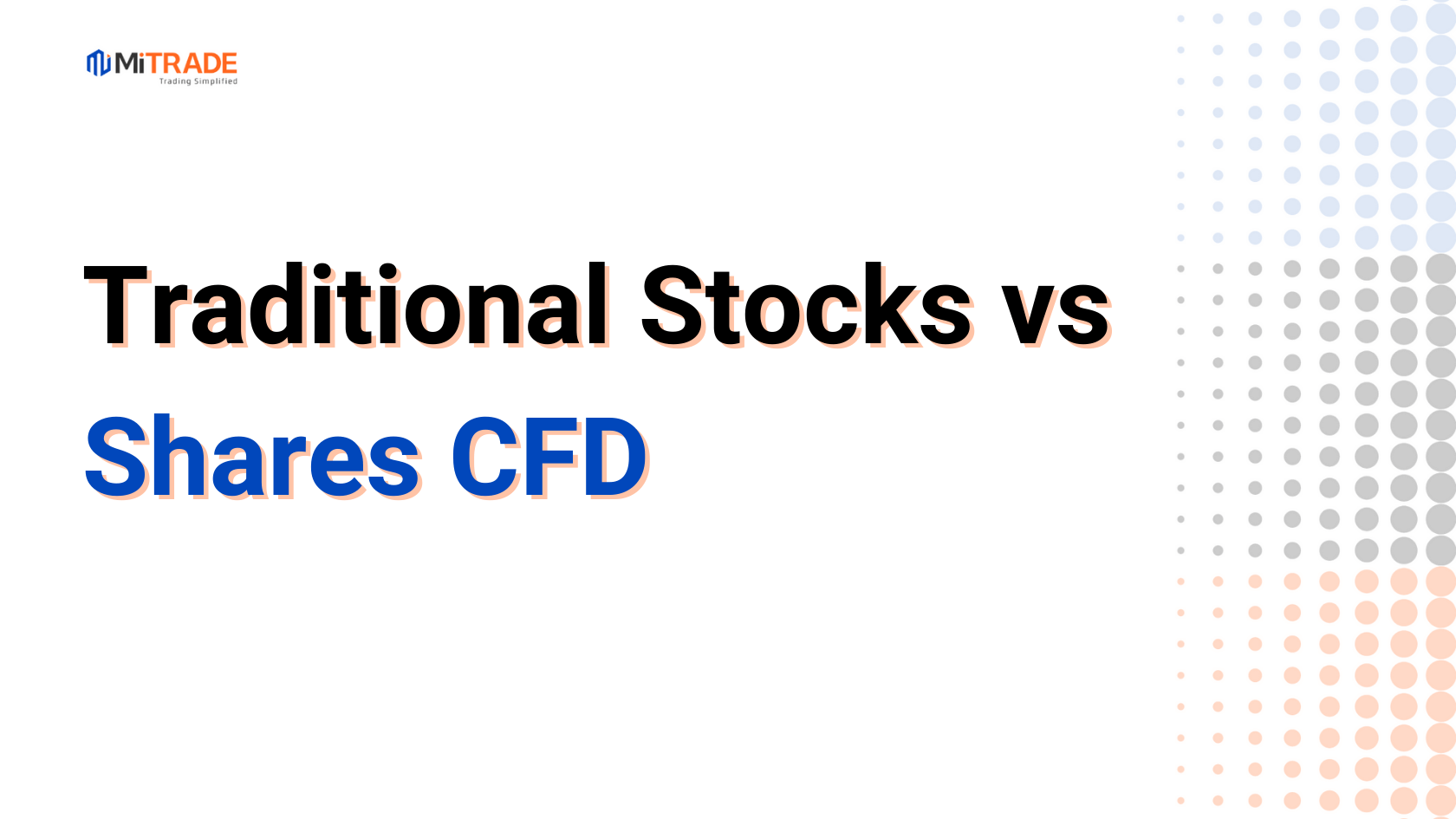Traditional Stocks vs Shares CFD

While both traditional stocks and share CFDs allow you to profit from fluctuations in stock prices, there are some benefits unique to CFD share trading.
Traders who trade share CFDs do not own the actual underlying assets but can still profit from price changes in the stock.
A CFD is a contract between two parties (the provider and you, the trader), and the profit or loss is the difference between your entry and exit prices.
| Shares CFD | Traditional Stocks | |
|---|---|---|
| Leverage | Yes | |
| Ownership, Ability to exercise voting rights | Yes | |
| Go both long and short | Yes | |
| Settlement Period | Immediate | Can take two or three business days |
Share CFDs allow traders to use leverage, meaning they can use less capital to obtain greater potential returns. However, the use of leveraged trading also represents higher risks and potential losses.
Share CFD traders do not own the underlying stock and therefore do not have the right to vote or any rights to subscribe, issue, or split the shares.
Note: Mitrade will take measures, including adjustments to account balances, to minimize the impact of corporate actions on trading positions. Therefore, investors can check the adjusted amount (if applicable). Mitrade will credit the amount equivalent to the dividend payout to the traders’ accounts.
Trading CFDs offers traders more flexibility, allowing them to go both long and short in the market. Even during bearish periods, CFD traders can take on short-selling trades to profit from market declines.
Unlike traditional stocks, CFDs don’t have a settlement period. This means your profit or loss is calculated the instant you close your position, making it much easier to enter and exit trades and quickly allocate your resources to your next position. In contrast, stock positions can take up to two days to settle before you gain access to your capital.
Before making any trading decisions, it is important to equip yourself with sufficient fundamental knowledge, have a comprehensive understanding of market trends, be aware of risks and hidden costs, carefully consider investment targets, level of experience, risk appetite, and seek professional advice if necessary.
Furthermore, the content of this article is solely the author's personal opinion and does not necessarily constitute investment advice. The content of this article is for reference purposes only, and readers should not use this article as a basis for any investment decisions.
Investors should not rely on this information as a substitute for independent judgment or make decisions solely based on this information. It does not constitute any trading activity and does not guarantee any profits in trading.
If you have any inquiries regarding the data, information, or content related to Mitrade in this article, please contact us via email: insights@mitrade.com. The Mitrade team will carefully review the content to continue improving the quality of the article.

